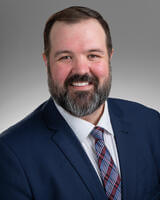Sanford Eating Disorders & Weight Management Center
The Sanford Eating Disorders & Weight Management Center specializes in treatment for eating disorders and solutions for maintaining a healthy weight.
Don’t spend another day thinking that change isn’t possible. Our specialists offer compassionate care and support at every step of your journey. Contact us today.
Eating Disorder Treatment
If you struggle with physical, behavioral or emotional relationships with food or weight, our team is here to help. We provide treatment for men and women with anorexia, bulimia, binge eating and other eating disorders. Our programs offer a personalized approach and can help you with specific triggers and disordered eating habits.
Depending on your treatment needs, your provider may recommend a hospital stay or day program, known as partial hospitalization. In our day program, patients receive care throughout the day and go home at night. Our hospital and partial hospital programs are located at the Sanford Broadway Medical Center.
Weight Management
Our weight management program provides long-term solutions for maintaining a healthy weight. Each program can be tailored to your specific needs and goals. We’ll help you make sustainable changes to improve your overall health and well-being.
Watch the video below to learn more about our comprehensive approach to weight loss.
Sanford Eating Disorders & Weight Management Center Doctors
Morgan Borud, APRN, CNP
Eating Disorders
Dorian Dodd, PhD
Psychology
Kathryn Erickson, APRN, CNP
Eating Disorders
Michelle Jorgensen, MD
Pediatric Psychiatry
Kelly Kadlec, EdD
Psychology
Brad Kohoutek, MD
Psychiatry
Cindy Sondag, MD
Psychiatry
Joseph Wonderlich, PhD
Psychology
Eating Disorder Programs
Outpatient Treatment
Outpatient treatment for eating disorders is based on a multidisciplinary team approach, which includes psychology, psychiatry, dietetics, nursing and medicine. Our team will assess you and determine the level of care you need.
If the team determines that you need outpatient care, we develop a treatment plan, which typically includes one to three sessions per week with various members of the team. Depending on progress and severity of the disorder, transfers to higher levels of care may occur, but patients typically return to the outpatient clinic.
The outpatient team will work with you to ensure that appropriate treatment is being delivered over time and that you're making progress.
Intensive Outpatient Treatment
Intensive outpatient treatment is useful when some structure is required but with enough time in the day to accommodate daily activities such as school or work.
Intensive outpatient services include meals and snacks, groups, medication management and therapy services. Intensive outpatient treatment is useful as a step down from partial hospitalization or as a step up from outpatient services in order to get back on track.
We offer eating disorder intensive outpatient treatment for adults and adolescents in morning or afternoon time slots.
Partial Hospital Program
When outpatient care is not enough, but full hospital treatment is not necessary, the partial hospital program at Sanford Health offers more intensive treatment for teens and adults dealing with eating disorders.
You will take part in a full range of therapies shown to work to help overcome eating disorders. Patients live off-site but spend each weekday from 7:15 a.m. to 6:30 p.m. in the partial hospital program. We also offer intensive outpatient services with shorter daily hours.
Take a virtual tour of our programs.
Inpatient Treatment
When your eating disorder is considered life-threatening, your doctor will often require you to be under close monitoring. Those who fail to respond to outpatient treatment or partial hospitalization, or whose medical or individual treatment needs require it, may be admitted into the Inpatient Eating Disorders Program located at Sanford Medical Center.
Treatment during the inpatient stage is intensive, including environmental trigger management and individual and family therapy. Our staff provides personalized guidance and support throughout your hospital stay.
Take a virtual tour of our programs.
Weight Management Program
Weight Loss Management
Weight loss management is a medically-managed weight loss program focusing on medication, interventions (if needed), individual and group nutritional classes, meal replacements, psychological evaluation and support as well as exercise options.
Weight loss management has many programs to fit your personal needs, including healthy lifestyles.











